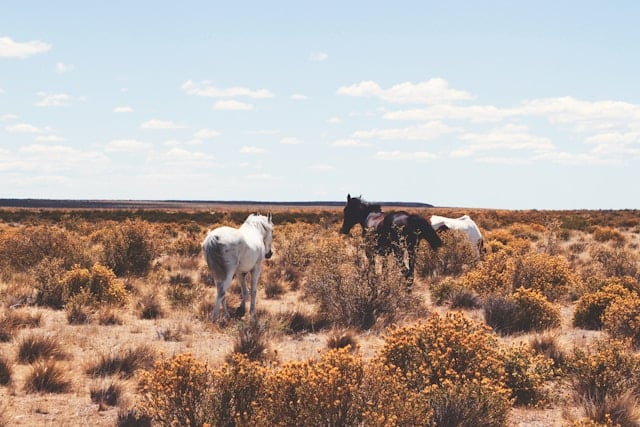Whether you’re an equine enthusiast or a seasoned horse owner, the decision to adopt a rescue horse can be incredibly fulfilling. However, it’s important to understand that this process can be daunting for the horse, and great care must be taken to help them adjust to their new home. Here, we’ll explore the process of acclimating a rescue horse to a new stable, and share essential tips to ensure a smooth and successful transition.
The Importance of Quarantine
When you first bring your rescue horse home, it’s crucial to give them time to adjust to their new environment. This is where quarantine comes in.
Cela peut vous intéresser : Different types of cat litter
Quarantine is an important first step in ensuring both the health of your rescue horse and the safety of any other horses you may already have. The process involves isolating the new horse from the rest of the herd for a period of time. This allows you to monitor the horse for any signs of illness before introducing them to the rest of the group.
It’s important to note that quarantine isn’t about punishment or isolation. It’s about giving the horse a safe space to adjust to their new surroundings. You’ll want to ensure that the quarantine area is comfortable, with plenty of water and high-quality hay. During this time, you’ll also want to work with a reputable veterinarian to conduct a thorough health assessment, including vaccinations and worming.
A lire en complément : How to choose a name for your pet
The Role of Care and Training
After your horse has successfully completed the quarantine period, the next step in the process is to begin building trust through care and training.
Rescue horses often come from situations of neglect or abuse, and as a result, they may have developed a fear of humans. It’s essential to approach your new horse with patience and kindness. Even simple tasks like grooming can help to build a bond between you and your horse and make them feel more at ease in their new environment.
Training should start slowly, with simple commands before gradually progressing to more advanced exercises. Remember, you’re not just training your horse – you’re teaching them that they can trust you. This process will take time, so be patient. And remember, a gentle, consistent approach will yield the best results.
Ensuring Proper Nutrition and Health
Another critical aspect of acclimating a rescue horse to a new stable is ensuring proper nutrition and health.
Many rescue horses come to their new stables in poor health due to malnutrition, and it will take time to rebuild their strength. It’s important to consult with a veterinarian or equine nutritionist to create a diet plan that will help your horse regain their health.
This might involve a mix of high-quality hay, grains, and supplements, depending on the horse’s specific needs. Regular health checks and dental care will also be crucial during this time to monitor your horse’s recovery and adjust their diet as needed.
The Introduction to the Herd
Once your horse is healthy and has started to build trust with you, it’s time to begin the process of introducing them to the rest of the herd.
This should be done gradually, starting with visual contact. Allow the horses to see each other from a safe distance, so they can start to get used to each other’s presence. From there, you can slowly introduce shared fence lines, allowing the horses to interact more closely while still maintaining a degree of separation.
During this time, keep a close eye on your horse and the herd’s behaviour. It’s normal for there to be some tension and posturing as the horses establish their social hierarchy. However, if you notice aggressive behaviour, you may need to step in and separate the horses.
The Joy of Riding and Training
Finally, after your horse has settled into their new stable and become acclimated to the herd, you can start riding and training them.
This is a wonderful milestone in the adoption process, but it’s important to approach it with the same patience and care as the previous steps. Start slowly, using positive reinforcement training methods to build your horse’s confidence and trust.
Remember, every horse is unique, and each will adjust to their new surroundings at their own pace. The key is to be patient, kind, and consistent. With time, care, and plenty of love, your rescue horse will become a cherished member of your equine family.
Caring for the Older Rescue Horse
When it comes to the care of an older horse, rescue horses often require additional consideration and attention. Many of these horses are rescued in their senior years, and they may have unique health and care needs.
The horse care of a senior horse involves the understanding of the impact of aging on the horse’s health and wellbeing. As horses age, they may experience changes in their metabolism, dental health, and overall physical capabilities. This, coupled with any potential trauma or neglect they may have suffered in the past, makes caring for an older rescue horse a deeply rewarding yet complex task.
Routine horse health checks are crucial in these instances. It’s vital to work closely with a veterinarian to manage any existing health conditions and monitor for any potential new ones. Special attention should be given to dental care, as older horses often suffer from dental issues that can impact their ability to eat and maintain healthy weight levels.
When it comes to horse riding, older rescue horses may not be capable of the same level of activity as their younger counterparts. It’s essential to adjust your riding lessons to accommodate their physical abilities and ensure that any riding activities are safe and comfortable for the horse.
Just like their younger counterparts, older horses need love, attention, and quality care to thrive in their new home. With appropriate care and attention, an older rescue horse can make a wonderful addition to any stable.
The Role of Welfare Charities in Horse Adoption
Welfare charities play a critical role in the horse adoption process. These organizations are dedicated to rescuing horses in need and helping them find loving, permanent homes.
Horse rescue organizations provide vital services for horses in need. They rescue horses from neglectful or abusive situations, provide them with medical care, and work tirelessly to rehabilitate them and prepare them for adoption.
Adoption welfare is a core focus of these charities. They strive to ensure that every horse they rescue finds a safe, nurturing environment where they can thrive. This includes thorough vetting of potential adoptive homes and ongoing support to ensure a successful transition for the horse.
These charities also play a role in educating the public about horse care, horse safety, and the realities of horse ownership. They often offer resources and training for new horse owners, helping to ensure successful adoptions and the wellbeing of the horses they rescue.
Conclusion: The Rewarding Journey of Rescuing a Horse
The journey of rescuing a horse and acclimating it to a new stable is one filled with patience, love, and care. From the initial stages of quarantine to the latest news that your horse is thriving in their new environment, the process can be a deeply rewarding experience.
Rescue horses, whether they are a spirited youngster or a wise senior horse, each carry their unique charm and potential. With time and dedication, these horses can transform from fearful and neglected creatures into confident, content, and cherished companions.
Remember, the key is patience. Each horse will adjust to their new life at their own pace. Whether it’s during horse riding lessons, integration with the herd, or simply getting used to human interaction, your horse’s welfare should always come first.
Horse adoption is more than just providing a home for a horse in need. It’s about giving these beautiful creatures a second chance at life. For those willing to invest the time and love required, the process of acclimating a rescue horse to a new stable can be a deeply rewarding journey.











